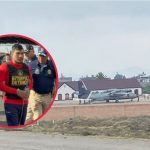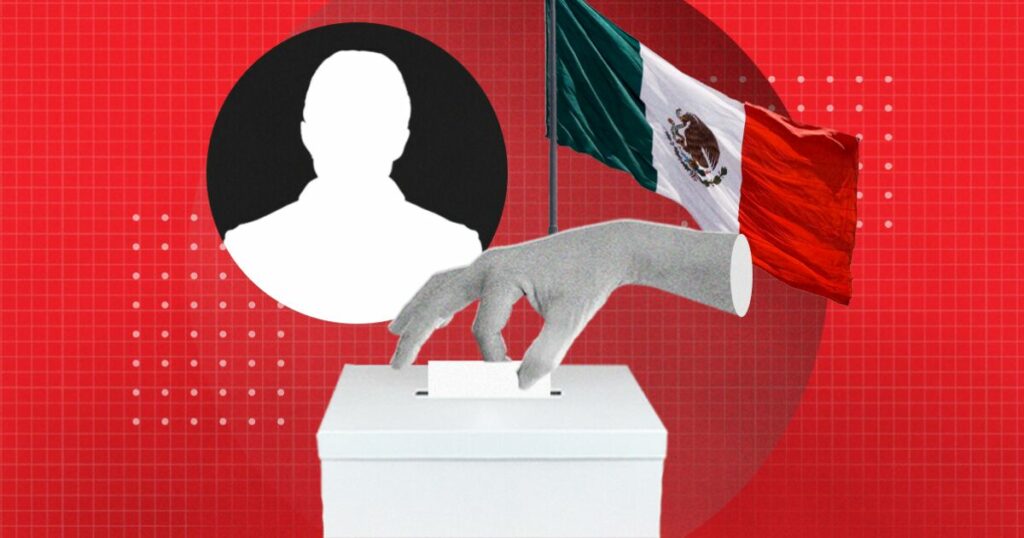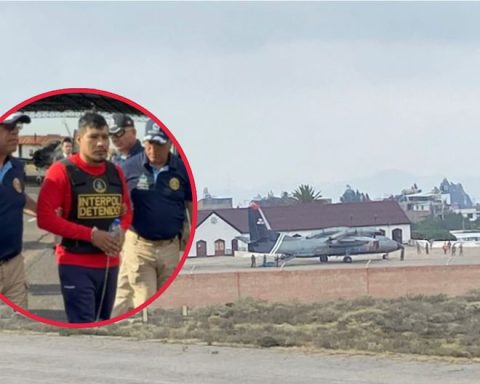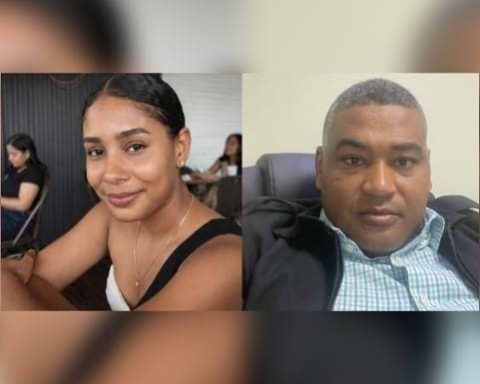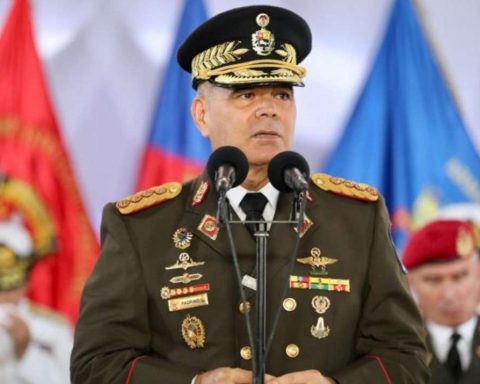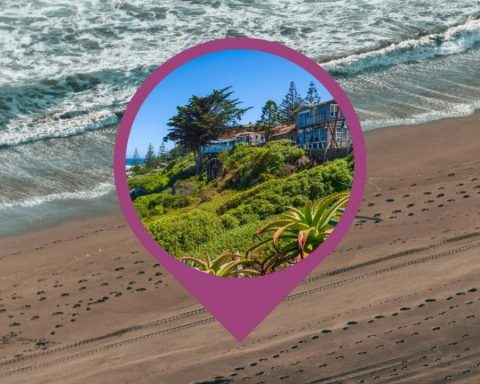When excited I approached to hug Miguel Mendoza and I saw his astonished face, I realized that, for him, I was a perfect stranger. But for me, his name had become the purest symbol of the brutal repression of the Nicaraguan dictatorship against journalists, when on June 20, 2021 he was arrested in his country, accused of cybercrimes and violating sovereignty. of the State. Even more so, later, when he was sentenced to 10 years in prison. Since then, I have named him in every international forum and in every report on the setbacks of freedom of expression in the Americas.
Miguel Mendoza is a Nicaraguan sports writer, released, along with 221 other political prisoners, and sent on a chartered flight to the United States on February 9 by the Ortega government. He says that he “never believed that he was caught up in the maelstrom that the country became,” although he liked being the sportswriter who “broke the ice by getting into politics.” In April 2018, he broadcast the political marches to his thousands of fans on Facebook live, since he considers it inconceivable that the sports section of a medium completely dissociates itself from the serious things that were happening in the country, such as the murder of more than 300 People who participated in the protests.
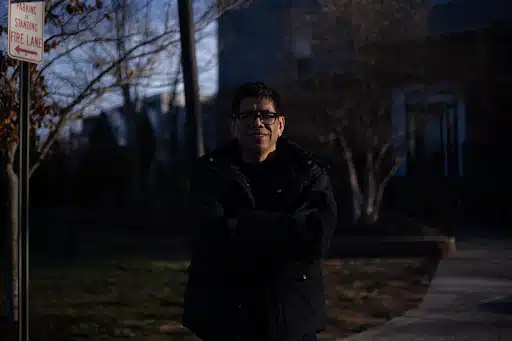
Miguel Mendoza remained imprisoned for almost 600 days under torture conditions. From being in complete isolation for entire weeks in a sealed 2×2 meter cell, provided only with a cement cot and a tube to relieve himself, to the psychological torture that the guards imposed on him by denying him all information, including the results. of the World Cup in Qatar 2022. But his good humor was with him and, to the delight of his then cellmates, he narrated an imaginary soccer match, where Brazil won the cup, while listening through the window of the cell, which he then shared with 3 other detainees. It wasn’t until a week later, at a family visit on December 25, that he learned the actual result.
During his captivity, Miguel Mendoza went on a hunger strike to claim his right to see his daughter, Alejandra, which was granted a year and a half after his arbitrary detention. He has lost a lot of weight in jail and his features have hardened, but his good humor remains. The sudden decision of the regime of Daniel Ortega and Rosario Murillo sentenced him to stateless exile in the United States. With gratitude, he welcomed Spain’s offer to grant him citizenship, but he prefers to stay in the United States, because he loves baseball. And with impressive speed he managed to get accredited to cover the World Baseball Classic, in Miami, this March.
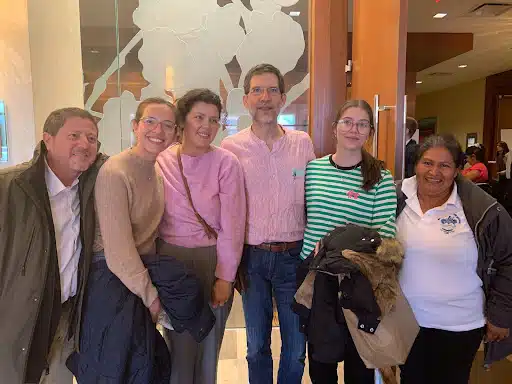
John Lawrence Holmann, The general manager of La Prensa was one of the first refugees to leave the plane that transported them from the Managua Air Base to Washington, where he was received by his daughters and other relatives. He assures that in the 545 days of his captivity “they could rob him of everything, except his dignity.” He was arrested on August 14, 2021, when the Nicaraguan Police confiscated the facilities of the hundred-year-old newspaper La Prensa and locked him up in the Evaristo Velásquez Sánchez Judicial Assistance Directorate, better known as ‘El Chipote’, a torture center for those who question the government. regime.
Juan Lorenzo was sentenced for alleged money laundering. Part of the psychological torture to which the political prisoners were subjected was depriving them of all reading material, they were not even allowed a Bible. He assures that the only thing he could read and reread, to keep his mind active, were the labels of the food that entered the cell. Unlike many of the refugees who arrived on the flight from exile, he has close relatives in the area to rebuild the home from which Sandinista sadism tore him, which attacked independent journalism. The repression against La Prensa began with withholding the paper and ink to print the newspaper and forcing them to close the print edition, and continued with the seizure of the facilities, the destruction of equipment and historical archives, the immobilization of bank accounts , the arbitrary detention of its directors and two drivers of the outlet, and, finally, the pressure to force the entire journalistic team in charge of the digital edition into exile.
The Judiciary, at the order of the repressive designs of the regime, had just sentenced two drivers of the newspaper, Mario Sanchez and carlos lam, to 10 years in prison and the payment of a fine equivalent to $1,000 on the morning of Wednesday, February 8, the eve of the surprise trip of the 222 political prisoners. They worked for 12 and 6 years, respectively, driving the medium’s vehicles, and were arrested on June 6, 2022 after providing logistical support to the journalistic team for the coverage of the expulsion of the missionaries Mother Teresa of Calcutta from Nicaragua.
In the hotel where the exiles were housed, Carlos adjusted with difficulty a pair of red gloves, which were the only ones he found of a medium-large size to warm his hands on the cold winter morning in the United States. The warm clothing, which the Nicaraguan diaspora and many solidarity organizations brought, managed to alleviate only the basic needs of the refugees, who arrived wearing the clothes they were given in prison, when they boarded the buses that took them out on Wednesday the 8th at night from the detention centers, to take them to the Air Base. There, in the midst of uncertainty and the prohibition to speak to each other, they waited hours before being made to sign a document expressing their willingness to travel to the United States and handed over a passport issued four days earlier.
With no time to think about it, the refugees were ordered to accept their exile to the United States or return to jail in Nicaragua. None of them imagined that while they were flying, an illegitimate and hasty amendment to the Constitution had already been announced, which withdrew the citizenship of those who were declared traitors to the country, thus continuing the violation of their human rights, since no human being can be deprived of your identity. Their records were erased from the Civil Registry with impressive speed, and procedures such as ceding parental authority to relatives left in charge of minor children are impossible, because they no longer exist.
Neither Carlos nor Mario have wanted to speak publicly, but they have relatives in the United States, and they will be able to adapt to freedom by certainly having a gallo pinto for breakfast, which is never lacking on the Nicaraguan table.
I could see Pedro Joaquin Chamorro, member of the board of La Prensa, with visible signs of the effects that prison confinement causes in a 73-year-old person, thin and stooped. He was greeted by his daughter, who lives in DC, and immediately taken to her private residence.
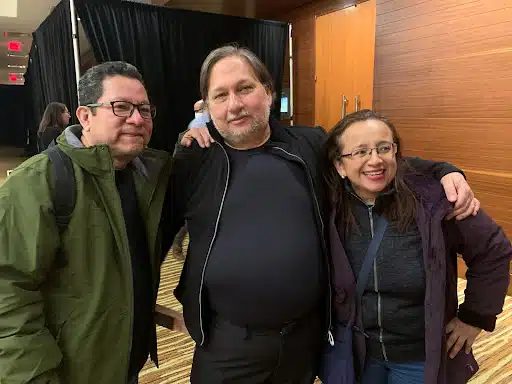
I was very impressed to see the political commentator Jaime Arellano, a man who was rather obese at the beginning of his arrest, has lost more than 50 pounds and his health has been seriously affected by confinement and torture. A talkative man who hosted political programs on Nicaraguan television and radio, he today has many difficulties speaking, which appeared along with severe headaches and eye problems for him. Like other travelers on the exile flight, upon his arrival, he was taken to a hospital to have his blood pressure checked and extensive checkups performed.
Sharing for days the experiences of the refugees in the hotel that the State Department enabled to grant humanitarian asylum and organize the arrival of Nicaraguan prisoners of conscience, allowed me to hear many stories of pain and heartbreak. Very few want their names named, fearing the repression will spread to others. And that, now that the prisons have been emptied, they fill them with their relatives, as hostages, or with their friends and acquaintances.
It took me a while to be able to talk to Miguel Mora, the founder of 100% Noticias, who had already suffered a first confinement in December 2018, along with Lucia Pineda. In June 2021, he was imprisoned again and sentenced to 15 years in prison for “undermining national integrity.” In the only interview he gave, Miguel assured that he had a divine revelation that announced his release in February. A man of deep faith, he recounted how prayer accompanied him and most of the detainees. Miguel has a sister in the vicinity of Washington and, once the migratory procedures were completed, he moved to his new residence, to share, among others, with his mother, who undertook an immediate trip to hug him.
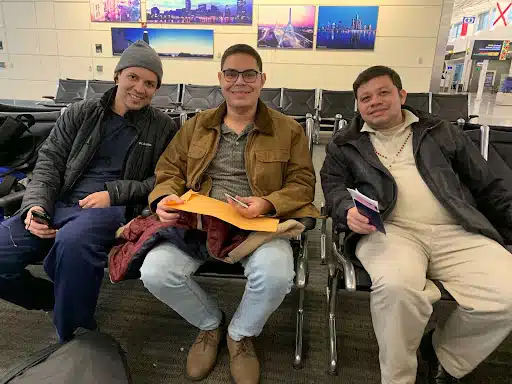
For the communicators of the Archdiocese of Matagalpa, the arbitrary detention was relatively brief, compared to the media workers. They were arrested on December 11, after the closure of dozens of Catholic radio stations in Nicaragua. Manuel Obando Cortedanomedia director of the Diocese of Matagalpa and Wilberto Artola reporter for the television channel TV Merced, will face exile in Miami, together with Monsignor Silvio José Báez and other members of the persecuted Catholic Church of Nicaragua.
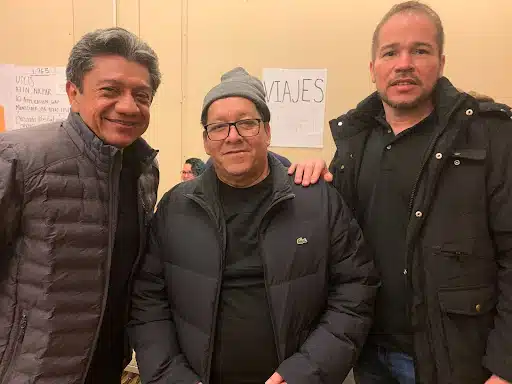
The persecuted members of the extinct Violeta Barrios de Chamorro Foundation, who were arrested in early June 2021 and accused of money laundering, have also regained their freedom. walter gomez, financier of the institution, went to Tennessee welcomed by his cousins. Counter, Frame Freightwas received by close friends.
The driver, peter vasquez, who has been psychologically affected by the confinement, has no relatives or acquaintances in the country and does not know how he will get by without the language, without knowing the streets of the cities and far from his countryside and his wife. Pedro was placed in a diaspora foster home.
The journalist and director of the extinct Foundation, Christian Chamorro, spent his entire captivity under house arrest. The brief minutes that I saw her hug her brothers and relatives, I perceived her thinness and the extreme exhaustion of her confinement. It was the only time I saw her, as she passed away from the operations center where the State Department attended to all the refugees.
For the journalists and media workers whose integrity we have defended over the years, a new chapter in their lives begins, provided with the support of organizations that defend human rights and freedom of expression, and they are part of a privileged group of political prisoners. , among whom are presidential candidates, political activists, business and union leaders, or even bankers, and ex-guerrillas who fought alongside Ortega against Somoza.
But the vast majority of exiles have no references in the US, they have never been on a plane, they do not know the language and they did not even flirt with “the American dream” that is now imposed on them. They are peasants and students who were the first to raise the protest against the regime in April 2018. Some of them are boys who are barely over 20 years old and have already spent a quarter of their lives behind bars. They are women and men, teachers, nurses, veterinarians, housewives, ordinary citizens, who one day were put behind bars by Sandinista hatred and accused of some crime. All of them left the reception hotel with bags loaded with some donated clothes. They go from confinement in sealed cells to the infinite heaven of the homeless, without knowing when they will be able to return to their Nicaragua. When will they be able to hug their loved ones again, now that time will extend even more than the days of uncertainty between the sporadic family visits allowed in the torture centers.
Original text published in fundamedios






